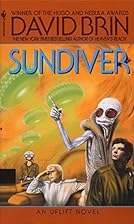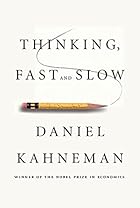David Brin has a degree in astrophysics from the California Institute of Technology, and a Ph.D. in space science from UCSD. He writes hard science fiction, and has won 2 Hugos (Startide Rising 1984, The Uplift War 1987) and 1 Nebula award (Startide Rising). Half of his books are part of the Uplift series for which he is famous.
Sundiver is the first in the Uplift series. It introduces us to the concept of the uplift, which is where a senior species with space travel selects a primitive race. Then through training and genetics, helps that species advance to the point of space travel. That species then owes service to the senior.
In Sundiver, the self-uplifting humans work with a team of aliens to dive into the Sun to explore a new sentient species unknown to the galaxy. The first dive ended in disaster, and a subsequent trip has problems that suggest sabotage. The story has intrigue and borders on being a mystery, except that the reader does not have sufficient backstory information to attempt a solution and must follow the story line.
The book sets up some interesting politics and potential for further stories, evidenced by the large number of books in the series. We are introduced to a new Earth with restrictions on travel, some odd cultural subgroups, and alien zones. Since humanity is self-uplifted, there is some resentment among other species who owe debts for having space travel and being part of a galactic community. We only experience a few aliens, they are unique and well thought out.
I had difficulty understanding the main character, Jacob Demwa. His character was not well defined for me, maybe I missed something. The book opened with him working with some sentient dolphins, when he was invited to join an expedition to study the solar chromosphere. It wasn’t clear why this character was important to the project. In spite of this weakness, the story is well told, the technology is interesting, and the pace is very good.


